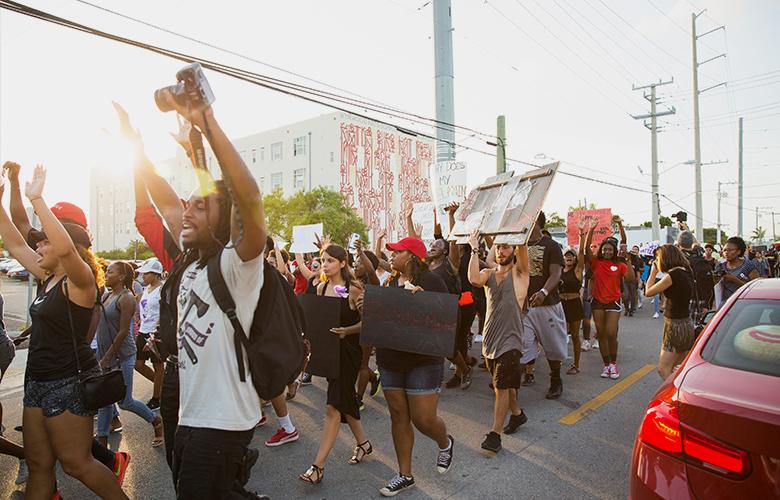
Racism is a public health problem perpetuated by structures and systems that those in power have been reluctant to change. Indeed, Boston’s Mayor Marty Walsh declared it a public health emergency. Most research linking racism to health disparities focuses on how individuals experience discrimination. Yet, evidence is mounting to show how policies, practices, and entrenched social norms constrict opportunities for populations of color in education, housing, employment, criminal justice, and health, which lead to disparities in disease outcomes—with Black and Brown people faring worse than their White counterparts.
- Ongoing police brutality directed toward Black men and women, and the resulting diffusion of responsibility and leniency in sentencing, constitute structural racism that leads to repeated psychological traumas among affected communities.
- Residential segregation and place-based inequities are associated with multiple adverse health outcomes, such as increased risk of chronic disease and decreased longevity.
- Systemic discrimination against Black patients in health care settings begets inadequate treatment, frustrating clinical experiences, and reduced access to care.
- Disproportionate arrest rates of Black men and women for marijuana use—almost four times higher than those of whites with use rates about the same—creates obstacles to acquiring basic needs, such as employment and housing.
As public health professionals, we have an important role to play in preventing structural racism in addition to mitigating and healing its resulting traumas and health disparities by:
- Engaging with local communities, listening to diverse experiences, and amplifying the voices of Black and Brown communities to inform programs and services.
- Determining how to better measure structural racism and white entitlement and collecting data to help us understand and raise awareness of the connections between diminished opportunities and health.
- Re-examining our current prevention policies, programs, and practices and their impact on communities of color and discontinuing or changing those that don’t produce results or that limit opportunities.
- Advocating for a shift in funding from over-policing and criminalization of health risk behaviors to social, economic, educational, and health services and programs that address intergenerational transmission of traumas, build community resilience, and promote individual well-being.
- Rigorously evaluating the programs and practices we develop and implement to ensure they reach and promote positive outcomes for the populations they were meant to serve and truly reduce health disparities at scale.
- Diversifying and better preparing public health professionals to recognize and address systemic racism in institutional and community settings.
We have an opportunity and responsibility to leverage our collective outrage for change. Let’s use this moment to identify ways to dismantle structural racism and promote health for all as we would do with any major risk factor for poor health outcomes.
| Kim Dash develops and evaluates programs designed to improve health outcomes for populations affected by adverse experiences. | |
| Chelsey Goddard is a certified prevention specialist with a deep commitment to behavioral health equity. |


Add new comment